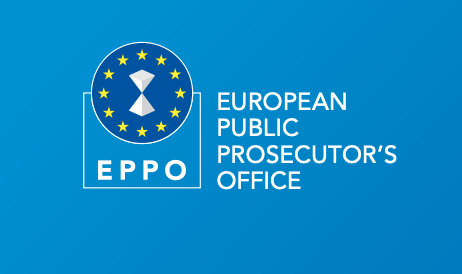Caroline Ceriello, J.D. Candidate 2017, Columbia Law School
With its remarkably low corporate tax rate of 12.5%, Ireland has become home to many companies formerly headquartered in the United States and seeking refuge from the 35% U.S. tax rate. In this context, a “tax inversion” usually refers to a corporate restructuring in which a U.S. corporation is acquired by a foreign holding company and assumes its foreign headquarters as a subsidiary. However, the entity remains listed under the U.S. issuer’s name in U.S. securities markets.
As Professor Eric Talley emphasizes, there are three key unique features of the U.S. tax regime that drive U.S. multinational corporations (MNCs) to pursue effective tax avoidance tactics: “(1) [R]elatively high ‘headline’ tax rates [around 35% – 40%]; (2) incorporation-based tax residency rules; and (3) worldwide (rather than territorial) reach.” To put the problem faced by these companies succinctly, a MNC that is incorporated in the United States will owe substantial taxes on all of its revenue earned worldwide, not solely from its U.S. operations, and that revenue will be taxed at a very high rate. If a corporation successfully changes its residency for tax purposes through an inversion, it will only owe U.S. tax liability on revenue earned within the United States. Thus, if a MNC successfully navigates the anti-inversion provisions of the Internal Revenue Code (IRC), it can pursue a very effective tax avoidance strategy.
This growing inversion trend has given birth to what the Wall Street Journal has dubbed a “Celtic Tiger.” Ireland reported its 2015 GDP growth as a shocking 26.3%. This phenomenal growth has been derisively described by one Nobel Prize winning economist, Paul Krugman, as “Leprechaun economics.” Even Taoiseach Enda Kenny has admitted that this figure “is not representative of the real economy. The [Irish] Department of Finance’s figure for economic growth last year was in the region of 3.5 per cent to 4 per cent.” Whatever the accurate figure, this “one-time effect” still has noticeable consequences for Ireland, which was particularly hard hit during the 2008 financial crisis.
In any event, the legislative effects of Ireland’s low corporate tax rate have been felt tangibly outside of Ireland as well. Most notably, tax policy debates are raging in Ireland’s competitor jurisdictions for corporate domiciliation. One U.S. lobbyist group, the RATE Coalition, demands that the U.S. Congress reform the U.S. tax code. The coalition’s supporters include Boeing and Verizon. The coalition seeks to promote corporate tax reform as a priority for the incoming executive administration. One advertisement campaign of the group that was aired during the Republican and Democratic conventions, dubbed “From Ireland With Love,” features an Irishman who states, “on behalf of the people of Ireland, I’d like to thank the American Congress for failing to reform your tax code.” But rather than reform the IRC to encourage U.S. corporate domicile, the U.S. government has sought to divest inversions of any effective tax benefits.
President Obama has been adamant that it is a priority for his administration to impede, if not to halt, this well-established tax avoidance strategy. Obama stated, “[e]ven as corporate profits are as high as ever, a small but growing group of big corporations are fleeing the [United States] to get out of paying taxes . . . [W]hen some companies cherrypick their taxes, it damages the country’s finances. It adds to the deficit. It makes it harder to invest in the things that will keep America strong, and it sticks you with the tab for what they stash offshore.”
The two primary sections of the IRC (the “Anti-Inversion Rules”) that were designed to discourage inversions are Sections 367(a) and 7874.
- Section 367(a) imposes a shareholder-level recognition of gains if the U.S. shareholder transfers appreciated property to a foreign corporation in an otherwise tax-free transaction. Section 7874 was introduced in 2004 due to insufficient deterrence in the case of shareholders “with little built-in gain or shareholders that are not subject to U.S. tax.”
- Section 7874(a) subjects the domestic target to an “inversion gain” if the foreign acquirer is a “surrogate foreign corporation.” Such is the case if three criteria are met: (i) the “entity completes . . . the direct or indirect acquisition of substantially all of the properties held directly or indirectly by a domestic corporation,” (ii) “after the acquisition at least 60 percent of the stock (by vote or value) of the entity is held” by former shareholders of the domestic corporation, and (iii) after the acquisition, the acquirer’s “expanded affiliated group,” including the target, lacks “substantial business activities” in the home country of the foreign acquirer.
- Alternatively, Section 7874(b) applies if the foreign acquirer would be deemed to be a surrogate foreign corporation under subsection (a) and the 60% threshold in 7874(a)(2)(B)(ii) reaches 80%. If 7874(b) applies, the foreign acquirer will be treated as a domestic corporation for all U.S. tax purposes. Thus, the inversion would essentially have no U.S. tax benefits, or other desirable economic effects, if 7874(b) applies.
Obama praised the Treasury Department’s recent action building upon preexisting tax laws to prevent companies that are serial inverters or are stripping their earnings from avoiding the threshold trigger under Section 7874. These “adverse tax law changes” successfully halted a potential merger between U.S.-based Pfizer Inc. and Dublin-domiciled Allergan PLC. Their 2016 merger, with a purchase price of $150 billion, was abandoned in April as a result of this change. It would have been the largest such healthcare deal in history.
Further, the continuing trend of inversions affects tax policy in other countries in addition to the United States. This inversion movement coupled with Brexit leaves many U.K.-domiciled MNCs with uncertain future tax treatment. Previously, the U.K. had been a favorable alternative haven for companies seeking to invert. A post-Brexit U.K. government may seek to cut Britain’s tax rate, which currently stands at about 20%, to compete with Ireland and to safeguard London’s position as a global financial capital. Considering the economic and constitutional repercussions expected to follow Brexit, companies that have inverted by seeking tax residency in the U.K. may reconsider and look to EU Member States, most notably Ireland. The U.K. may no longer be a tax effective holding company jurisdiction if certain U.S.-EU tax treaties cease to apply to U.K.-domiciled MNCs. Sarah Carlson, a senior vice president at Moody’s, stated that “Ireland has by far the largest exposure to the U.K.’s exit from the EU.” Whether that exposure will further contribute to the “Celtic Tiger’s” growth, or affect Ireland in a less beneficial way, remains to be seen in due time.
Featured Image Source: http://i.telegraph.co.uk/multimedia/archive/01767/tiger_1767251b.jpg




